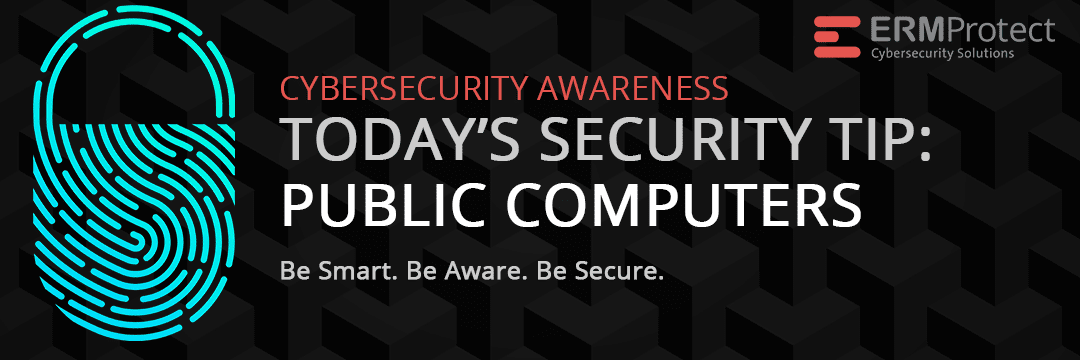Cyber Tip of the Day - Public Computers - Cybersecurity Awareness Training
Public computers that offer you Internet access are high-risk spaces where your personal and sensitive information can and will get stolen.
Here are some tips to protect yourself:
- Disable “Autocomplete” and “Save Password” features in the browser before you start browsing.
- Consider using private or incognito mode in browsers that makes sure nothing is stored on the public machine.
- Do not use toolbars and don’t click on ads that appear on the sites you visit.
- Be wary of anyone trying to snoop over your shoulder. Avoid entering sensitive information such as credit card numbers or financial details while using public computers.
- Don’t leave your machine unattended while you’re using it.
- Clear the temporary internet files and browsing history when you finish using the public computer.
- Remember to logout of websites when you’re done working. Don’t just close the browser or type another site address in the URL.
- If possible, avoid using public computers such as those in hotel lobbies or public libraries altogether. You never know who’s been using them and what’s on them.
Be Smart. Be Aware. Be Secure. ERMProtect.

Get a curated briefing of the week's biggest cyber news every Friday.

Turn your employees into a human firewall with our innovative Security Awareness Training.
Our e-learning modules take the boring out of security training.
Intelligence and Insights

Quantum Computing Puts Today’s Encryption at Risk
Security experts warn that hackers are already harvesting encrypted data to decrypt later, making quantum safe cryptography an urgent priority for every sector …

Are You Prepared for an AI-Powered Cyber Attack?
The question is no longer whether AI will impact cybersecurity, but whether organizations are prepared for the reality of AI-powered cyberattacks …

AI Privacy Risks
Users face a range of privacy concerns with AI – from models training on sensitive user data to attackers using AI tools to study their targets …
